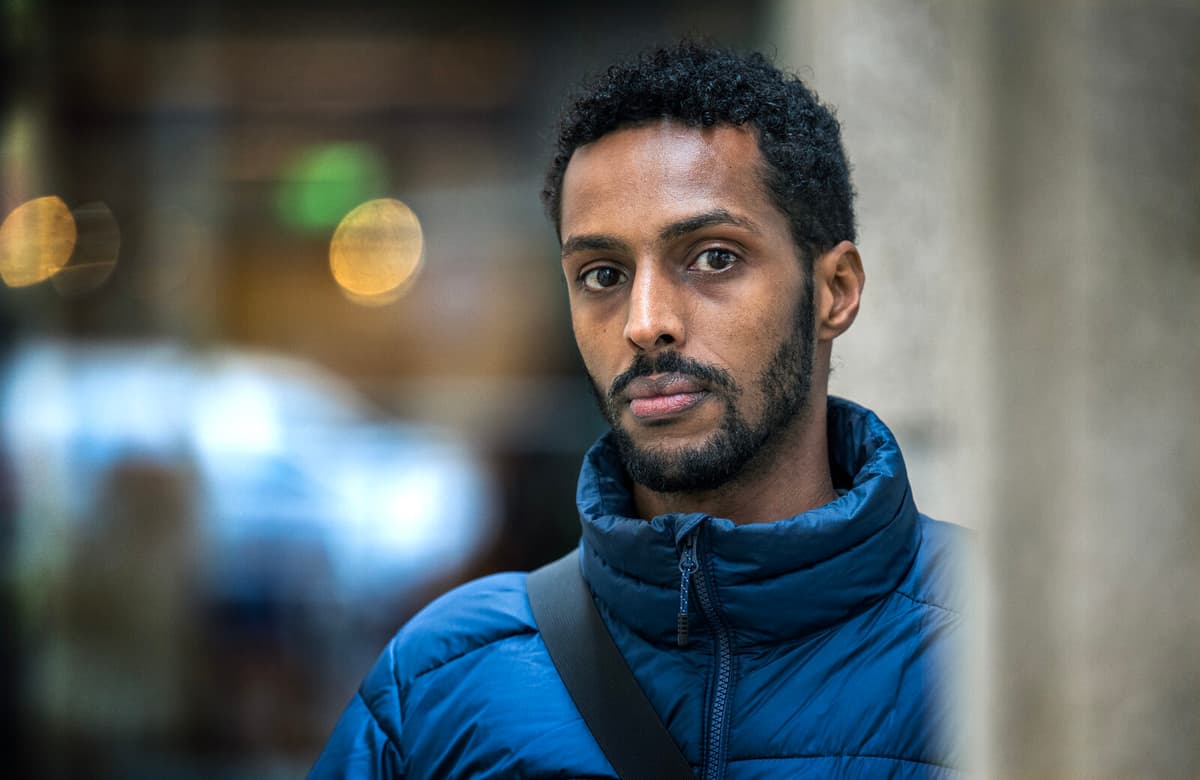On New Year's Eve 2021, the young artist Yasin was arrested, suspected of involvement in a kidnapping attempt on the rapper Einár. He was sentenced to ten months in prison – and it was then that cultural journalist Mohamed Yussuf first made contact with one of the biggest names in Swedish gangster rap.
We have met continuously from the beginning of 2022, as soon as he was released, says Mohamed Yussuf – who has met the rapper when he lived a small child's life in Brussels and Berlin.
He describes how Yasin went from being "the local hero" to becoming one of Sweden's most streamed artists.
Not whitewashing
It is also, in a way, the rise and fall of gangster rap that Mohamed Yussuf portrays. Creative young people in Rinkeby started writing rhymes and releasing their music digitally, disconnected from the established music world.
It's more high chaparral, and all the criminality that has been linked to the genre is part of it, says Yussuf.
He sees his book as an inverted version of Diamant Salihu's "Tills alla dör". In the escalating Rinkeby conflict, he focuses on the young people's entire lives. He draws parallels to the significance of poetry in Somalia, a cultural heritage that Yasin, Jaffar, and Dree Low grew up with – just like he himself.
But is he worried about uncritically promoting their version?
I'm not doing this to whitewash Yasin or tarnish his name. I want people to understand the genre, Yasin, the rappers, society, and the suburbs, on a deeper level than we were yesterday.
Small child's father
After the murder of Einár, society got a touch of fear towards the music. Yasin has never answered Mohamed Yussuf's questions about the deed, but says he wants to leave his sins behind.
Critics claim, however, that he still profits from the gangster romanticism, and last year his planned comeback at Tele2 Arena was stopped by the police. Mohamed Yussuf describes the gangster rappers' dilemma.
They become artists when they are very young, and get stuck when they are very young. Then it stays and becomes part of their lives and artistry.
Mohamed Yussuf claims that Yasin no longer has any incentives to commit crimes. He wants to move forward in his career, and is booked for three – heavily criticized – performances in Umeå, Borlänge, and Kristianstad this summer. At the same time, fans expect a tough style.
The image often differs almost always from the real person, even for gangster rappers. So what is artistry and what is real? The boundary is so thin that it can be difficult to know.
Born: 1988 in Cairo. Came to Sweden at the age of two and grew up in Falkenberg.
Family: Mother, father, four sisters.
Career: Has freelanced as a cultural journalist at, among others, Filter and Dagens Nyheter. Debuts with "Nation of Poets".
Reads mostly: "You read so damn much at work, so sometimes you can't take more. But if I got to choose, I'd rather read a novel. I read a lot of poetry too".
Last read: Something that doesn't have to do with work? "Yellowface".
... the Somali poetry tradition he highlights:
"It's extremely clear within the Somali. There's a very playful way of speaking, which is teasing, a creativity that is rooted in the Somali poetry tradition that permeates everything. I've grown up with it, everyone has cassette tapes at home with spoken poetry or recorded bands with someone on stage."
... whether Yasin has left criminality.
"He has said many different times 'now I've left'. Then the thing with Einár happened. But when the kidnapping became public, it had happened a year earlier. So much happens in such a short time for them, and it's so hectic. Now he says 'no, I've taken these measures and don't even live in Sweden anymore'. So how do you label someone like Yasin, is he an ex-criminal, or is he a law-abiding citizen who has paid taxes for three years and left his sins behind?"






